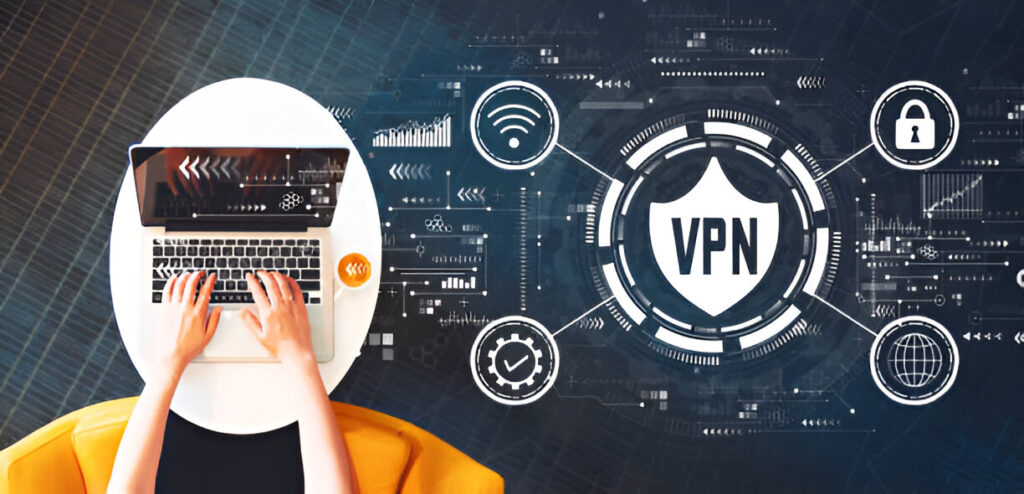Cyber threats are everywhere today, such as malware, ransomware, phishing, and data breaches. Moreover, hackers are using more and more advanced methods to get past security measures, so traditional approaches are not always able to detect and stop cyberattacks.
As the world continues to evolve, innovative technologies such as artificial intelligence are quickly becoming critical components of the modern age. By taking the protection of your data seriously, you can fully enjoy the power of AI.
Luckily, a free VPN (PlanetVPN) is available to everyone, allowing users around the world to enjoy modern technologies while maintaining online security and privacy.
Privacy concerns in the AI era
AI products like ChatGPT have some built-in security features that prevent attackers from using it for malicious purposes. For example, if someone directly asks the chatbot to create ransomware, it will refuse.
However, some recent experiments prove that cybercriminals can bypass these measures. Here are the potential threats we may soon face from the malicious use of ChatGPT and other types of AI.
1. The rise of malware.
In theory, any AI-based tool capable of writing code can also create malware. Attackers on blackhat hacker forums have already claimed to use this tool to create malicious code that can endanger devices and systems.
2. More phishing emails.
Phishing is a malicious technique used by cybercriminals to send legitimate emails and text messages to their victims. These messages usually contain fake links that lead to shady websites or malware-infected files.
3. Spam content
ChatGPT can generate spam content, such as fake giveaways, intrusive promotions, and misleading advertisements.
Of course, Google is likely to block a website that consists entirely of content generated by artificial intelligence. However, fraudsters can advertise such sites through social media accounts and direct messages, making them difficult to identify and avoid.
On top of these growing threats, there is a growing concern about the way in which AI models use data to learn and how this affects their decision-making. Businesses around the world are integrating AI to automate routine processes. We are not far off from the time when the decision to open a credit limit, the first stages of recruitment, such as CV screening, will be made entirely by artificial intelligence.
Today, AI already collects data about people from various sources, links them together, and creates profiles. Personal data can be added to such a profile, which will influence decision-making in the future. Therefore, users are already thinking of ways to protect their personal data. And in this regard, the VPN is a useful tool.
How a free VPN helps keep your personal data private
A VPN is very much like a secret tunnel to safeguard users’ activities over the Internet. It reroutes your encrypted traffic through a remote VPN server. This way, your data becomes out of reach of intruders. Additionally, you can hide your IP address, since every time you connect to a new VPN server, you get a new IP address and can change your virtual location. Thus, using a free VPN you will keep your data and online activities private and secure, especially when you share sensitive information.
FreeVPNplanet is a leader in the market of free VPNs. It can be your best solution for data protection. Among the benefits:
- Extensive server network. This will not only allow you to easily change your virtual location and hide your IP address but also open access to ChatGPT from anywhere in the world without restrictions.
- New generation data encryption. FreeVPNplanet uses the most advanced encryption algorithm. With it, your data is as safe as a national secret.
- Online privacy. By connecting to a VPN, you will receive a new anonymous IP address that protects your online identity.
- No limits on traffic, time of use, or speed.
Why you should use a free VPN for ChatGPT
ChatGPT keeps track of your past requests, detects your location, and identifies the device from which you are connecting. Network administrators will also be aware that you are utilizing ChatGPT. Here’s when the VPN becomes useful.
- Use a free VPN to maintain the privacy of your virtual location.
Your IP address is a very confidential piece of data unrelated to your ChatGPT queries. Use a VPN to prevent ChatGPT and other online services from seeing your virtual location.
ChatGPT needs you to register, therefore using it completely anonymously isn’t possible. Nevertheless, you can conceal your IP address, which will stop tracking where you are and identifying your device. Connecting to a distant VPN server will immediately hide your IP address from prying eyes. Instead, the only thing that will be displayed is the VPN server’s address.
- Refrain from disclosing your ChatGPT usage to others.
Your ISP, the network administrator, and even hackers on the same network may see you are using ChatGPT. By encrypting your internet traffic, a VPN keeps prying eyes out of your business. If your network has prohibited ChatGPT, the VPN will let you get beyond the limitations.
- Access ChatGPT securely on public Wi-Fi networks.
Free wireless networks are not safe enough for secure Internet browsing since they do not require authentication to access the Internet. Using ChatGPT on open Wi-Fi networks comes with a number of risks. Furthermore, hackers could be able to access, steal, or use your data if you haven’t safeguarded it.
With VPNs, hackers can’t easily access your data because it is encrypted. Consequently, you may utilize ChatGPT and other contemporary technologies safely on any network, no matter where you are.
To fully benefit from the power of AI, users must take a comprehensive approach to cybersecurity and data protection. In this aspect, a free VPN is a good choice, not only protecting user privacy but also ensuring access to AI products when and where they are needed.

